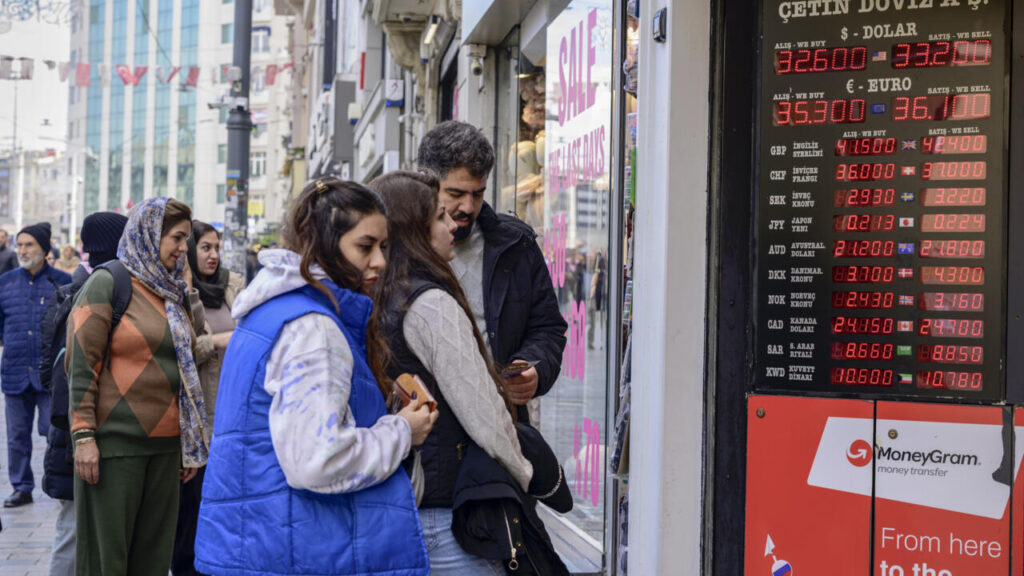ISTANBUL (AFP) – Turkey’s central bank raised its key interest rate on Thursday, resuming a monetary tightening cycle after inflation, the world’s highest, rose again last month.
Issue date: 2024/03/21 – 13:07Update date: 2024/03/21 – 13:43
2 minutes
The move comes 10 days before local elections, when Turkey’s cost-of-living crisis has become a major issue for President Recep Tayyip Erdogan and his ruling AKP party.
The central bank’s Monetary Policy Committee issued a statement citing a “deteriorating inflation outlook” and decided to raise the policy interest rate from 45% to 50%.
The bank said in January that this would be its last rate hike, as the level at that time had been enough to ease the cost-of-living crisis.
However, annual inflation rose again in February to reach 67.1%.
The bank had raised interest rates from 8.5 percent to 45 percent since June, but kept them unchanged in February.
“We will tighten our monetary policy stance if we expect a significant and sustained deterioration in inflation,” the central bank said on Thursday.
Emerging markets economist Timothy Ash said the unexpected decision to raise interest rates was a “very positive move.”
He said this showed that Finance Minister Mehmet Simsek’s economic team and the central bank had been given a “strong mandate to use all means to fight inflation.”
“They’ve now proven themselves,” Ash said.
– “Encouraging signals” –
Economists say capital inflows are slowing and foreign exchange reserves are falling again, increasing pressure on Turkish policymakers ahead of local elections on March 31.
Bartosz Sawicki, a market analyst at Konotokia Fintech, said Turkey’s monetary policy had entered a “critical phase”.
“A vicious circle of previously known vulnerabilities appears to be gaining momentum again,” Sawicki said.
“Inflation shows no signs of abating, the lira is under renewed pressure and foreign capital inflows appear to be losing steam, exposing depleting foreign exchange reserves.”
The economic crisis nearly cost Erdogan his re-election bid in May last year.
He won by promising his supporters huge pay increases and introducing an early retirement program that would cost the government billions of dollars.
Speaking at a rally in western Turkey on Wednesday, Erdogan acknowledged that high inflation poses a challenge for the government as the AKP seeks to retake control of key cities such as Istanbul currently held by the main opposition party.
“Today, we are faced with the challenge of rising living costs and the resulting erosion of the welfare of our citizens on fixed incomes,” he said.
But he assured that employees and pensioners would benefit from a brighter economic outlook as inflation slows.
“We will overcome all of this,” he said.
Liam Peach, senior emerging markets economist at Capital Economics, said Thursday’s decision could accelerate the lira’s weakness following local elections and high inflation, leaving open the possibility of another rate hike in April.
Pietsch suggested banks have burned through billions of dollars in foreign exchange reserves in recent months to stabilise the lira.
“From that standpoint, there are some questions,” Pietsch said.
“But even so, the decision to respond swiftly to the recent high inflation rates and raise interest rates ahead of the local elections is clearly a very encouraging signal towards a policy shift,” he said.
© 2024 AFP


